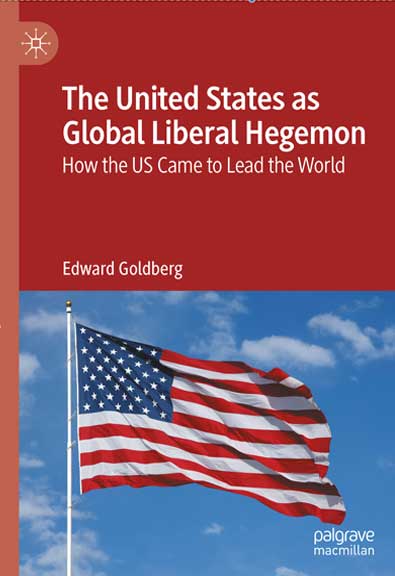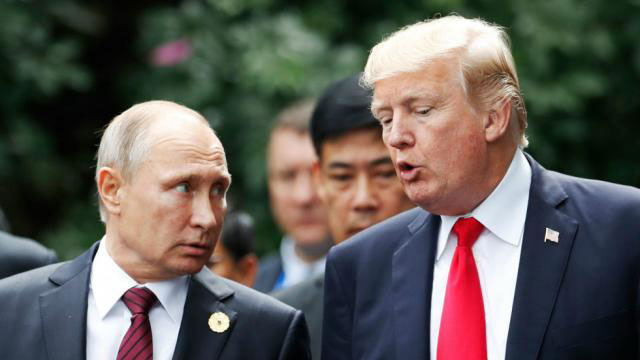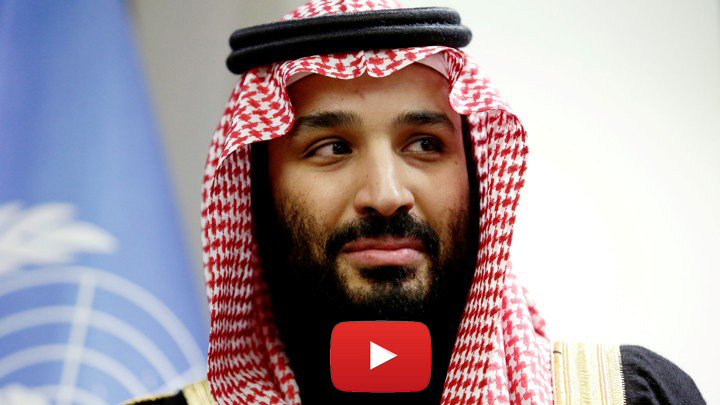

Edward Goldberg’s Latest Book: The United States as
Global Liberal Hegemon:
The United States as Global Liberal Hegemon:
How the US Came
to Lead the World
The United States As Global Hegemon ask the questions: Does the world need a liberal
hegemony / a cop? If so why the United States?
And what benefits if any do U.S. citizens get from their country playing this role?
This book examines America’s role as the global liberal hegemon, its historical development, and its ability to fulfill that function. Click here for additional details.
Edward Goldberg’s previous book:
Why Globalization Works for America: How Nationalist Trade Policies Are Destroying Our Country
Published by Potomac Books an Imprint of The University of Nebraska Press
What people have said about Why Globalization Works For America:
........................................
Thomas L. Friedman of the New York Times tweeted out:
CHECK OUT EDWARD GOLDBERG'S NEW BOOK ON GLOBALIZATION. VERY SMART ANALYST!
Daniel Griswold wrote in the National Review
“The reader is rewarded with a better understanding of why openness to trade and immigration remains the best policy choice to keep America strong, prosperous, and great.”-
Kirkus
"Goldberg makes an effective argument on behalf of his thesis that globalization is ultimately a force for good, and that the populist objection to its growth is, in fact, damaging: ‘America’s enemy is not globalization; America’s enemy is America.
A fine job of explaining the benefits and the inevitability of globalization consistently informative and highly readable.”-
Heather Timmons, Economic Editor for Reuters wrote “ A Richly detailed clear-eyed examination of how America arrived at this odd moment in history and what truly makes the U.S. economy great.”
Blue-collar job loss, immigration, trade deficits—Americans blame globalization for a host of problems. Indeed, even in a political system split by fundamental divisions, populists and progressives alike belong to a chorus that decries globalization’s effects on our politics, way of life, and interactions with the world.
Edward Goldberg argues that globalization is the economic and cultural version of evolution. He demonstrates why globalization is here to stay, why America is the winner in the game of globalization, why all the king’s horses and all the king’s men can’t put the Humpty Dumpty of yesterday’s non-globalized world back together again. And why nationalist, politically motivated anti globalized trade policies doom nations.
In his earlier book, The Joint Ventured Nation: Why America Needs A New Foreign Policy, Edward Goldberg clearly showed why America’s leadership as the senior partner in a globalized world is key and why America’s fate, contrary to a Trumpian view of the world, is intertwined with its economic partners.
Edward Goldberg talking with Kathleen Hays on Bloomberg TV’s Daybreak Asia about the U.S. trade war with China Trade Negotiations
Edward Goldberg talks about the G-20 meeting and Xi and Trump with Nicole Petallides on TDA Network live from the NASDAQ trading floor
Edward Goldberg Discusses Russia, The United States and Globalization with Vladamir Duthiers and Reena Ninan of CBS News
Edward Goldberg discusses: A New Cold War, Globalization and Patriotic Capitalism.
Edward Goldberg forecast that trade will be one of central economic issues of the Trump administration.
Edward Goldberg writes about Trump and Putin for The Hill

Donald Trump and Vladimir Putin: Global rivals to be King of Chaos
A horse race is going on in geopolitics: Who can officially be crowned King of Chaos, with both Vladimir Putin and Donald Trump vying for the title? The difference is, in terms of Russian history, culture and its current economic structure, there is a method to Putin’s madness. In Trump’s case as leader of the United States, if one rules out personal avarice the method becomes difficult to discern.
Russia is the singular loser in the game of globalization. Drowning in its kleptocracy and never having joined the globalized world, Russia during recent years has gone economically backwards. Oil, its main product, is rapidly becoming yesterday’s product, even with the current bounce in the oil markets. Since oil until had long been a “take it or leave it” product, the Russian economy never needed to develop the entrepreneurial skills to develop and sell other products to the world.
For Putin, there is power in disrupting the globalized world. He knows it would take immense changes for Russia to be a player in globalization, changes that would threaten the establishment. Putin clearly sees that where China might see its future in globalization, Russia’s power lays in the old fashioned game of great powers. Putin knows that in that game, Russia, with a declining population and a small economy, can be a major player.
With the largest landmass in the world that touches on most of the global hot spots, while also touching on Europe and China, and with the second largest nuclear arsenal in the world, as well as a vote on the United Nations Security Council, Putin does not need to reform his economy to be a player. If the game is played the old fashioned way, Russia is a major player, even though it has an economy the same size as Spain with three times the population of Spain.
Disruption allows Putin to box way above Russia’s economic weight class. But disruption is detrimental not only to the global system that it has made a huge profitable investment in, it is detrimental to America’s future. The United States is still the biggest winner in globalization. Of course, a country like China that was in abject poverty became much richer because of globalization, but America became even wealthier.
Take a look at what has happened since 1980, when globalization first started to be a major factor. The United States at the time had a gross domestic product of $2.8 trillion, while that of China was only $302 billion. By 2016, the U.S. economy had grown to $18.6 trillion, and the Chinese economy grew to $11.3 trillion. The U.S. economy grew massively, even taking into account the crash of 2008. China’s rate of growth during the same time was much higher, but that is just basic common sense. If you start with very little, you need to catch up. The point is that the United States did not get poorer as China grew. It is quite the opposite.
Since China started at practically zero when globalization began, its winnings look much more impressive to the outside world than in reality. On a per capita basis, China is still very poor compared to the United States. In 2017 China’s per capita gross domestic product, based on purchasing power parity, was only $16,660, compared to $59,501 per capita for the United States. Even Greece, the stick person of Europe with a per capita income of $27,737, is wealthier than China.
While China was getting richer, American consumers on the whole benefitted, contrary to much of the rhetoric. Just look at basic items like baby and toddler clothes. On account of imports from China, the price of these items dropped by 10 percent from 1999 to 2013. According to the Federal Reserve Bank of Dallas, Americans saw their choice of products expand by one-third in recent decades on account of globalization.
A Trumpian “America First” strategy fights directly conflicts with U.S. interests in the age of globalization. It does not play to America’s strengths against the massive population, and now against the economic power of China, and soon that of India. Just think about the idea of tangible versus intangible assets. The old fixed localized steel mill works as a nationalist economic unit in an isolationist world. But the new companies with intangible assets like Apple and Google use the world as their platform and generate massive profits from it. Human capital, which is the basis of Apple and Google, is the new oil.
No other major country has this key economic and intellectual advantage in this area that the United States has. So what does President Trump gain from leading America into disorder? Short term, of course, it appeals to his political base. But the problem is that his base is not the future. So, then, what is the method in Trump’s geopolitical madness?
Edward Goldberg is a professor of international political economy at New York University's Center for Global Affairs, and author of "The Joint Ventured Nation: Why America Needs A New Foreign Policy.”
His next book is "Why Globalization Works: How Nationalist Trade Policies Destroy Countries.”
You can follow him on Twitter@EdwardGoldberg
